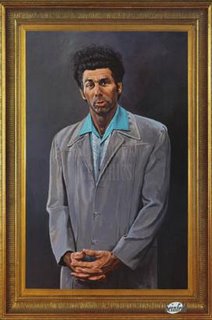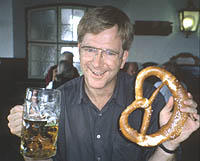Terry Eagleton, the Rise of English, the Decline of Civilization, and Television
 “Literature, in the meaning of the word we have inherited, is an ideology.”
“Literature, in the meaning of the word we have inherited, is an ideology.”–Terry Eagleton
“Television is the opiate of the masses.” –Don Knotts
 I was intrigued this week by Terry Eagleton’s “chapter” on the rise of English literature. According to Eagleton, the importance of English literature arose with the decline of religion, which once served the authoritative role that maintained the British class system. Eagleton writes: “As religion progressively ceases to provide social ‘cement,’ affective values and basic mythologies by which a socially turbulent class-society can be welded together, “English’ is constructed as a subject to carry this ideological burden from the Victorian period onwards” (2244). Instead of looking to Christian mythologies and Bible narratives for comfort, the lower classes read English literature, which alleviated the degradation of lower class living. Instead of wishing to better him or herself, a working class Brit would read Jane Austen, a sort of wish fulfillment of a better life. Eagleton writes: “instead of working to change such conditions…you can vicariously fulfill someone’s desire for a fuller life by handing them Pride and Prejudice” (2247). I find this idea particularly interesting, especially given today’s times. Although the masses don’t read Jane Austen much these days (they just watch the films), this idea can be seen in television. WARNING: MORE BUSH BAHSING AHEAD Since George W. Bush became President, the gap between the rich and poor has been widening, but it doesn’t appear that anyone seems to care. Television news doesn’t really spend much time on this issue (except for fake news shows anyway), and yet the people seem to be complicit in this growing divide of the classes. Instead of using the mass medium of television to convey important issues to the people, television appears to instill escapist values onto television spectators who can fulfill fantasies of high-priced, high class living on Soap Operas or shows like Sex and the City. Today shows like the O.C., and mostly any show on Mtv, portrays the lives of spoiled rich children and teens that enact fantasies of the good life without work. The Paris Hilton and Nichole Ritchie show portrays this in what is supposedly reality, but from what I gather, there’s not much reality involved. (To quote Jerry Seinfeld on the subject of reality television, “Where’s the reality?”) The “simple” folk—the lower class—watch Paris Hilton’s spoiled behavior and wish to live her lifestyle
I was intrigued this week by Terry Eagleton’s “chapter” on the rise of English literature. According to Eagleton, the importance of English literature arose with the decline of religion, which once served the authoritative role that maintained the British class system. Eagleton writes: “As religion progressively ceases to provide social ‘cement,’ affective values and basic mythologies by which a socially turbulent class-society can be welded together, “English’ is constructed as a subject to carry this ideological burden from the Victorian period onwards” (2244). Instead of looking to Christian mythologies and Bible narratives for comfort, the lower classes read English literature, which alleviated the degradation of lower class living. Instead of wishing to better him or herself, a working class Brit would read Jane Austen, a sort of wish fulfillment of a better life. Eagleton writes: “instead of working to change such conditions…you can vicariously fulfill someone’s desire for a fuller life by handing them Pride and Prejudice” (2247). I find this idea particularly interesting, especially given today’s times. Although the masses don’t read Jane Austen much these days (they just watch the films), this idea can be seen in television. WARNING: MORE BUSH BAHSING AHEAD Since George W. Bush became President, the gap between the rich and poor has been widening, but it doesn’t appear that anyone seems to care. Television news doesn’t really spend much time on this issue (except for fake news shows anyway), and yet the people seem to be complicit in this growing divide of the classes. Instead of using the mass medium of television to convey important issues to the people, television appears to instill escapist values onto television spectators who can fulfill fantasies of high-priced, high class living on Soap Operas or shows like Sex and the City. Today shows like the O.C., and mostly any show on Mtv, portrays the lives of spoiled rich children and teens that enact fantasies of the good life without work. The Paris Hilton and Nichole Ritchie show portrays this in what is supposedly reality, but from what I gather, there’s not much reality involved. (To quote Jerry Seinfeld on the subject of reality television, “Where’s the reality?”) The “simple” folk—the lower class—watch Paris Hilton’s spoiled behavior and wish to live her lifestyle  despite the fact that the show actually insults working class people. I don’t want to appear like I’m picking on the worst shows, so I will also point to the concept’s existence in a show I adore: Seinfeld. Even in a show as brilliant as Seinfeld, Eagleton’s theory of literature’s ideological control can be seen. George lives the good life even though he is a buffoon and can’t really hold down a real job (and if he does, he does a very, very, very bad job), and Kramer, I don’t think, has ever worked (If my memory serves me correctly, he was on strike from a menial job for the bulk of the years). In one episode, Jerry actually tells Kramer that people should pay to participate in a Kramer fantasy camp. Now that would be sweet!
despite the fact that the show actually insults working class people. I don’t want to appear like I’m picking on the worst shows, so I will also point to the concept’s existence in a show I adore: Seinfeld. Even in a show as brilliant as Seinfeld, Eagleton’s theory of literature’s ideological control can be seen. George lives the good life even though he is a buffoon and can’t really hold down a real job (and if he does, he does a very, very, very bad job), and Kramer, I don’t think, has ever worked (If my memory serves me correctly, he was on strike from a menial job for the bulk of the years). In one episode, Jerry actually tells Kramer that people should pay to participate in a Kramer fantasy camp. Now that would be sweet!


0 Comments:
Post a Comment
<< Home